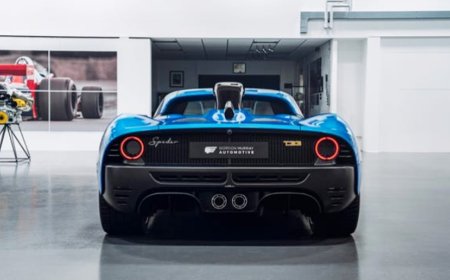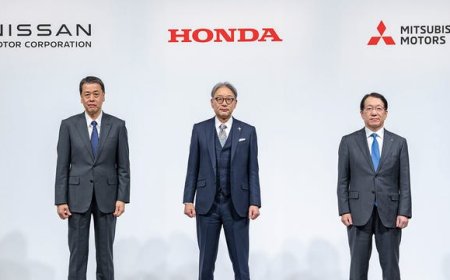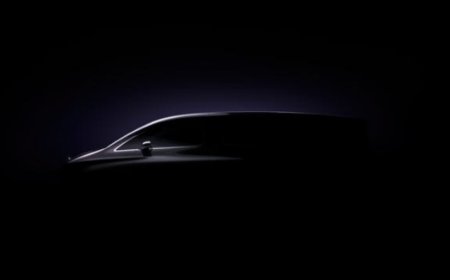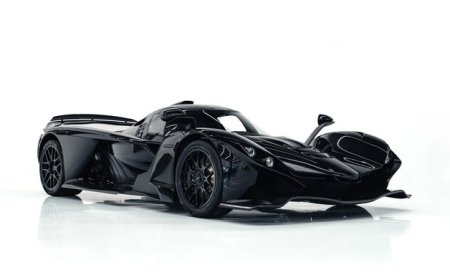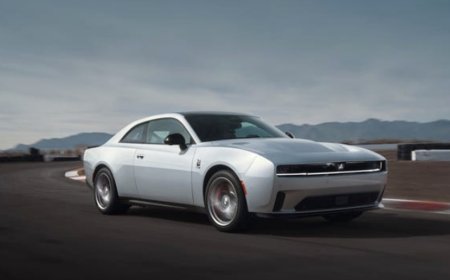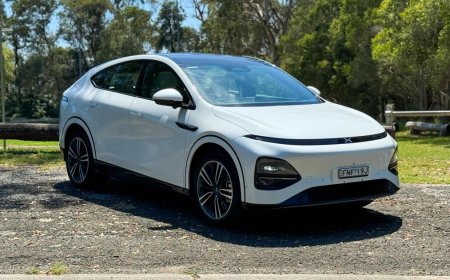Reviving these five models might save Mitsubishi
The lack of excitement in Mitsubishi's lineup turned away enthusiasts long ago, but with an impending cash injection from Nissan's merger with Honda, could Mitsubishi again become the exciting, sporty brand it once was?
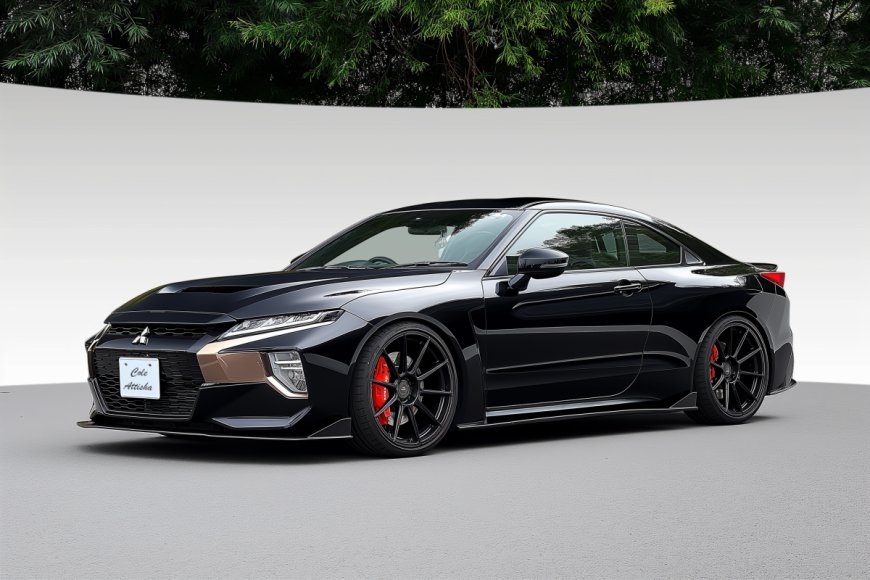
As official discussions of a merger between Honda and Nissan, which would include Mitsubishi, are underway, it's difficult to imagine where each brand will fit in. Traditionally, all three brands have directly competed with one another, with the majority of their model lineups placed in the same segments and around the same price points.
Related: Toyota GR Corolla TC races into the 2025 TC America Series
If the three brands are to merge, each brand would need to have its own unique appeal to buyers to not cannibalize each other's sales. This will already pose an interesting problem for Honda and Nissan on their own, so for Mitsubishi, the goal will likely be to prevent themselves from being swept under the rug. Some wooshy turbos, grippy all-wheel drive systems, and clanky manual transmissions could be a simple way of achieving just that. 
A focus on performance could give Mitsubishi the unique brand appeal they need to succeed
General Motors once faced a similar problem with their brands. At one point, they had Chevrolet, Buick, Oldsmobile, Pontiac, Saab, and Saturn all playing in the same sandbox. There were plenty of dark purple and beige, blob-shaped sedans roaming the streets of America at the time. Bob Lutz, a former General Motors executive, proposed that Pontiac could become GM's performance-oriented brand, with a focus on exciting muscle cars and sport sedans, and plenty of tire-smoking advertising.
Related: Sollei Concept is proof that Cadillac's malaise era is long gone
During the 2000s, Pontiac offered the North American market some of GM's finest creations; most of which were fantastic, rebadged products that GM sold in Australia as Holdens. The Pontiac GTO was a rebadged Holden Monaro and could be had with a variety of LS V8s, and the G8 was a rebadged Holden Commodore four-door sedan that could also be had with a roaring, thunderous V8 under the hood.
Unfortunately, the brand went out of business in 2010 as a result of the 2008 financial crisis, but a similar strategy successfully lived on through Dodge. The Challenger and Charger duo saw a production run of over thirteen years, drawing in sales of over 2 million units (combined) during that time. Not only did focusing on performance help Dodge sell millions of vehicles, but it also put the brand back on the map, and consumers and enthusiasts once again fell in love with their products. AI Generated Image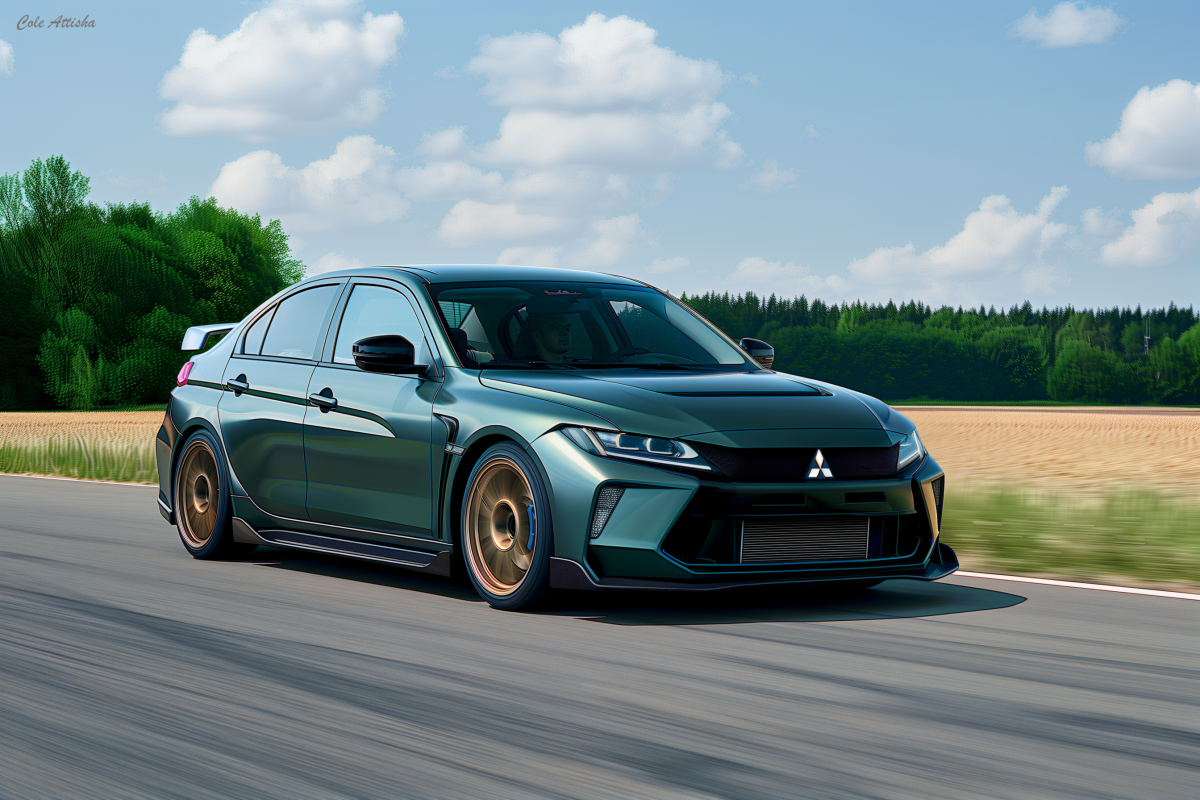
Reviving the beloved Lancer Evolution could be Mitsubishi's first step to employing this strategy
For Mitsubishi to distinguish itself from Honda and Nissan, marketing itself as the "sporty brand" of the bunch could start with the return of the Lancer Evolution. Toyota's GR Corolla, for example, has won over the hearts of enthusiasts, and Volkswagen's Golf GTI and Golf R still succeed in the North American market despite the removal of the standard Golf from VW's lineup. Affordable thrills combined with everyday usability have been proven to produce desirable results.
Related: 2025 Porsche 911 GTS T-Hybrid vs. 1965 Porsche 911
Using a turbocharged four-cylinder engine with a horsepower target of around 320, mated all-wheel drive, and the option between a six-speed manual transmission or a dual-clutch automatic, a Mitsubishi Lancer Evo XI could signal to buyers that Mitsubishi is still capable of producing more than generic crossovers with dreary continuously-variable transmissions. Remember the controversy when Mitsubishi used the beloved Eclipse name for a crossover? Maybe this could make up for it. AI Generated Image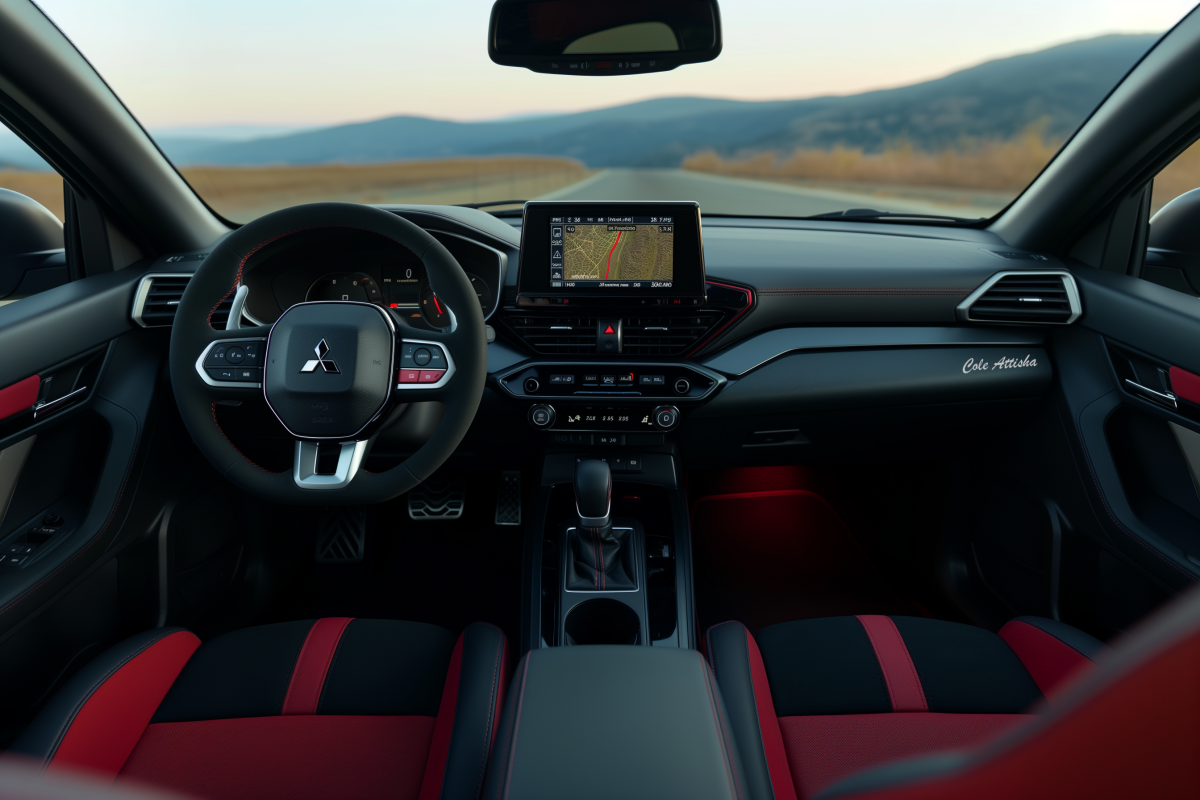
It's not as if the Mitsubishi Lancer Evolution is short on pedigree, either. Mitsubishi's established history in motorsports brought the brand plenty of sales success in the past, especially thanks to its glorious history in off-road rally racing. "Ralliart", "VR-4", and "Evolution" branded models evoked passion from buyers for many years, and those names still hold weight to this day.
Related: 2025 Mazda CX-50 Hybrid buyer's guide, pricing, and specs AI Generated Image
An all-new Legnum could mark the return of the legendary VR-4 nameplate
To Mitsubishi enthusiasts, the "VR-4" nameplate typically signaled a version of a standard Mitsubishi product, like a Galant mid-size sedan or a 3000GT sports coupe, that was turned up to eleven. This typically meant turbocharging, all-wheel drive, and optional manual transmissions. If it was a VR-4 model, and you were a car enthusiast, it's the one you wanted. The Legnum VR-4 was the sporty version of the station wagon version of the Galant.
Related: XPeng X2 takes flight in Australia
Mid-size sedans like the Galant, however, are unfortunately no longer wanted by North American buyers. Station wagons of this size, on the other hand, are becoming increasingly popular, especially as performance-oriented variants. Thanks to their ability to combine SUV comfort, space, and practicality with sport sedan agility and excitement, wagons have become desirable daily drivers for people who refuse to drive dull, boring crossovers.
A new Legnum VR-4 could be just that for the younger generation of car buyers who appreciate the livability of modern crossovers but resent the fact that only a math professor or a librarian could ever be excited by driving one. If you need a car with space for your family and decent enough fuel efficiency to ensure your financial advisor doesn't scream at you but also wants a driving experience that won't put you on suicide watch, the Legnum VR-4 could be the way to go. AI Generated Image
If you're lonely, however, a mid-engine Mitsubishi Eclipse could be your new best friend
For those of you out there who don't have a family to haul around with you, compact sport coupes have unfortunately become extremely rare offerings from automakers. The Mitsubishi Eclipse used to be one of the best options out there for people like you, but today cars like this are nowhere to be found.
Related: Toyota's big win: $4.5M to revolutionize EV battery production
That being said, a sporty, compact, front-wheel drive sports coupe is far from a feasible product these days in terms of sales. Enthusiasts know better and have access to more exciting alternative offerings these days, like the Subaru BRZ and Mazda MX-5 ND3. A mid-engine, V6-powered Mitsubishi Eclipse could offer the performance and price tag to compete with the likes of the Toyota Supra and BMW M240i but with a distinctive midship chassis design. AI Generated Image
Using a 400-ish horsepower turbocharged V6, mounted behind the cabin and paired with rear-wheel drive, a new Eclipse could be Mitsubishi's dedicated sports car to let the world know how dedicated they truly are to their performance-oriented vision. It would also be the least-expensive mid-engine sports car on the market at a time when Porsche's beloved Cayman is going full-EV, and Alfa Romeo's 4C is deceased. AI Generated Image
Reviving the Mitsubishi Sapporo might be an overzealous idea, but it sure looks good
The Mitsubishi Sapporo, also known as the Galant Lambda or the Scorpion, depending on where you lived, was a mid-size, rear-wheel drive sports coupe built in the 1970s and 80s. It was an affordable option for people who also wanted to combine everyday livability with thrilling performance, but leaned more towards the performance side of the spectrum.
Related: Why not buy a French tank off Bring a Trailer?
A modern Mitsubishi Sapporo could offer a more affordable, tuned-down version of the Nissan GT-R, kind of like what the Nissan Skyline used to be. It could be available with a slew of engine options, such as a turbocharged four-cylinder, a turbocharged V6, or perhaps even a Nissan-sourced V8 to compete with the Ford Mustang as a sporty pony car. AI Generated Image
This list wouldn't be complete without a crossover-dressing hot hatch
It may be pretty obvious to some that I've blatantly ripped off the Hyundai Kona N's paint scheme here, but that's not done unintentionally. The Kona N was a fantastic car, sticking with the theme of "usable thrills", that offered the performance of a Veloster N in the more practical packaging of the Kona compact crossover. AI Generated Image
Essentially, the Kona N was a hot hatch, just "hatchier", and the revival of the Colt Ralliart could do the same. It could use a turbocharged four-cylinder engine, like the Evolution, but with a slightly lower horsepower target of around 280. Instead of all-wheel drive, the Colt Ralliart could stick with a cheaper, lighter, front-wheel drive setup mated to a dual-clutch automatic transmission. This would ensure reasonable fuel efficiency, improved agility, and the ability to seamlessly switch between being a useful crossover and a scorching hot hatchback.
Related: Cybertruck hype fades: Once hot, now not, Tesla's pickup sits on lots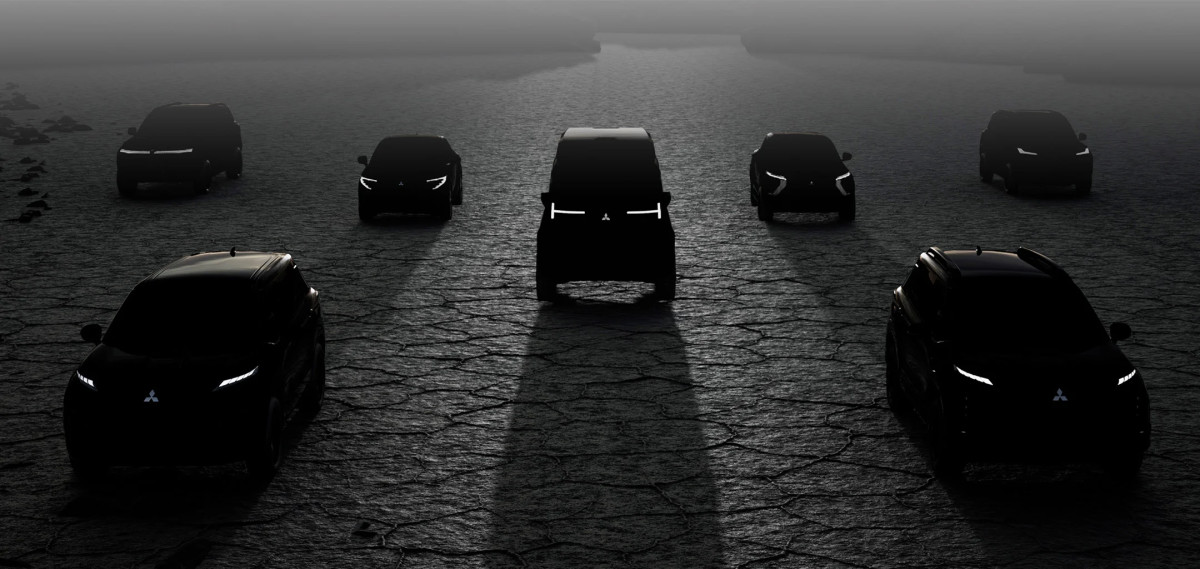
Final thoughts: a harsh reality
We don't live in fantasyland, however, and realistically, Mitsubishi will continue to pump out cheap crossovers that sell at an acceptable enough rate to keep shareholders satisfied. Further EV development will ensure that electric models come to Mitsubishi's lineup, and who knows, maybe they'll sell just fine, too.
Related: 2025 BMW X3 buyer’s guide and specs
But isn't that what Honda and Nissan are for? What makes an electric vehicle that was developed by Honda and Nissan any different when it's badged as a Mitsubishi, other than its body panels? If an anticipated result of this upcoming merger is to give Mitsubishi its own brand identity, then why not take advantage of the brand identity it once had, that enthusiasts still hold near and dear to their hearts?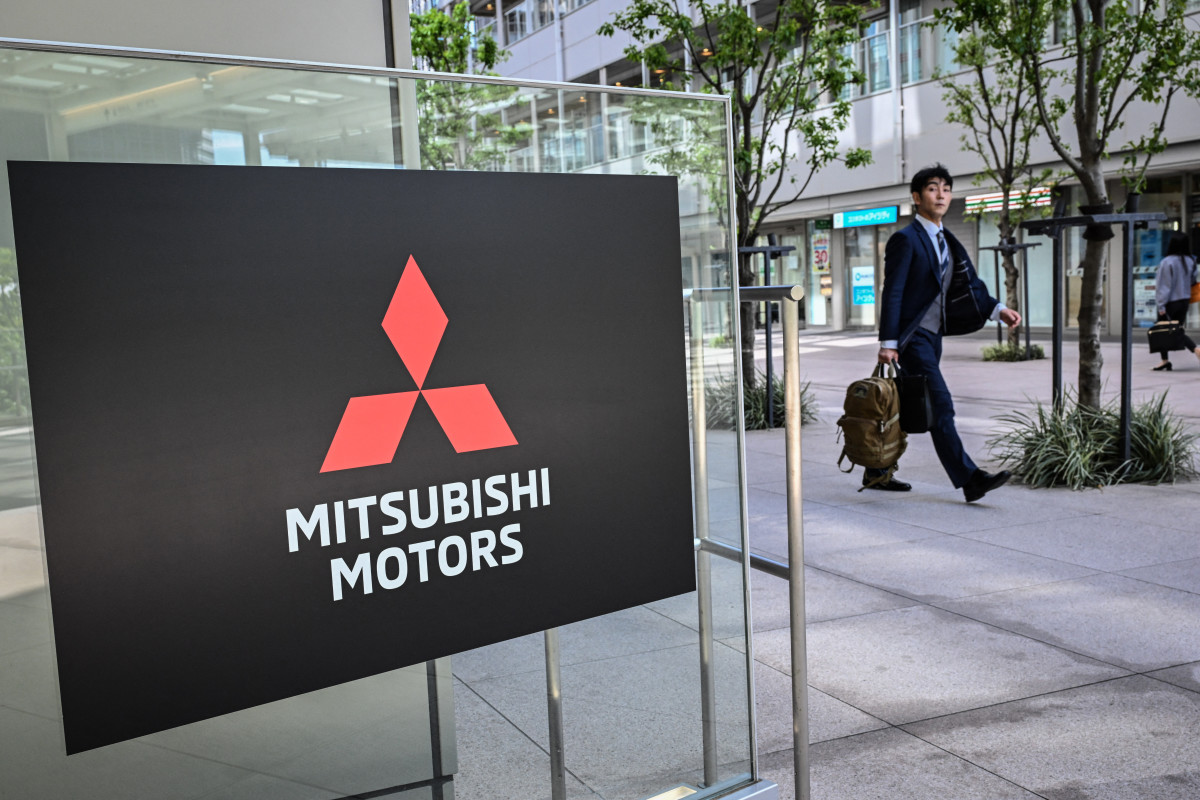
Do you want to see performance models return to Mitsubishi's lineup, or should they play it safe and continue to only offer models like the Outlander and the Eclipse Cross? Could you see yourself driving a mid-engine, V6-powered Eclipse or would you rather it stick to its roots as a front-wheel drive compact coupe? Let us know how you feel in the comments – we love to hear what you think!
